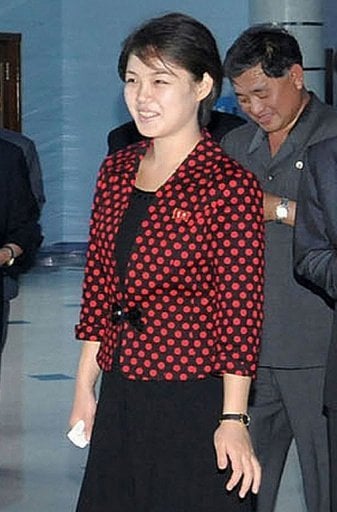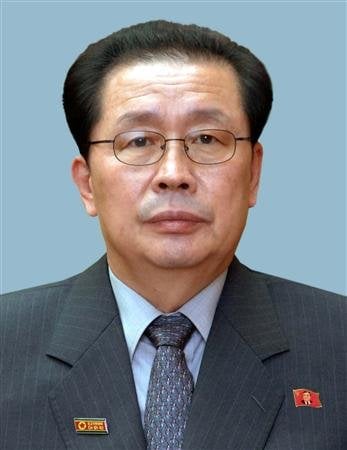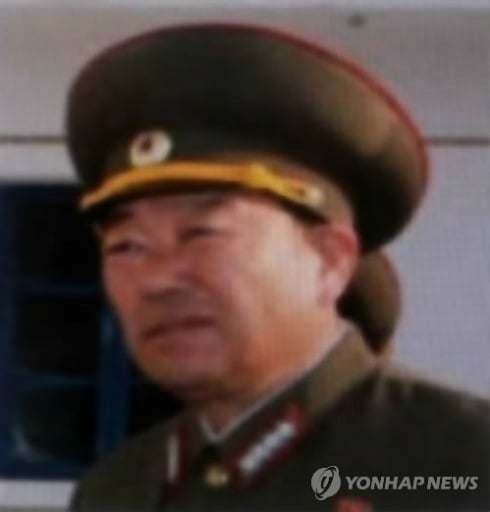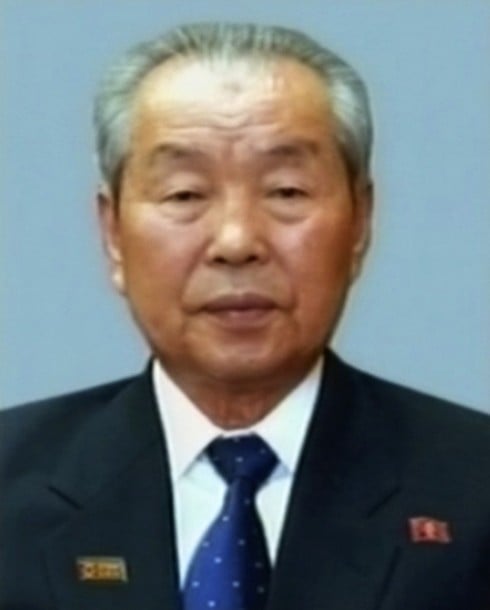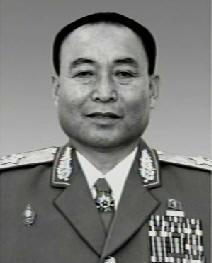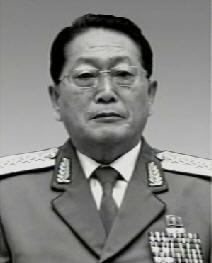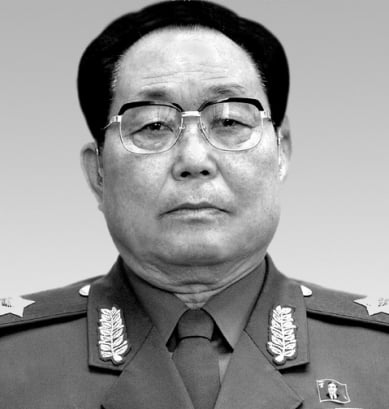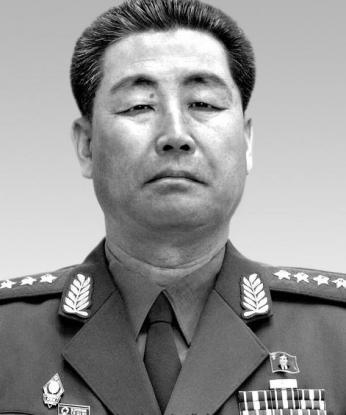North Korea’s new who’s who
Winners, losers and surprises among the nation’s ruling elite—for now.
Share
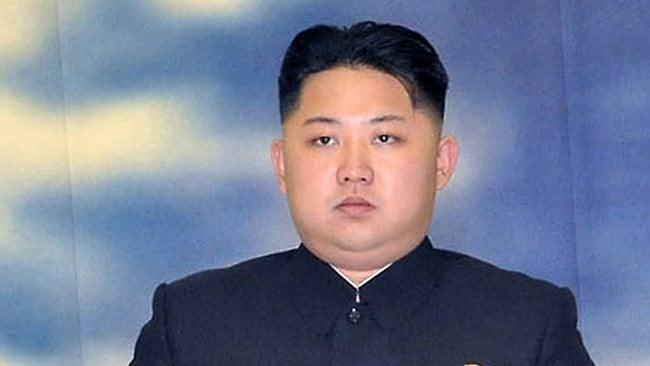 1. KIM JONG-UN
1. KIM JONG-UN
Supreme Leader
Supreme Commander, Korean People’s Army (KPA)
Chairman, National Defence Commission
Marshal, Korean People’s Army (KPA)
First Secretary, Workers’ Party of Korea (WPK)
Chairman, WPK’s Central Military Commission
Young Kim Jong-un (probably 28) has largely been seen as a figurehead manipulated by forces behind the throne since he replaced his father as nominal dictator of North Korea last December. That may be true, but the purging of Vice-marshal Ri Yong-ho removed at least one hand on the levers of power. Kim Jong-un probably is much more in tune with the views and aspirations of his wily uncle, Jang Song-taek, and may be exercising far more control than he is given credit for. He has remained calm, cool and collected throughout the recent upheaval and is consistent in his PR campaign to present himself as a caring, approachable leader doing his best to improve the lot of his people. The longer he remains at the top of the power pyramid, the greater will be his control. But — as with everything else in North Korea — his immediate future is tied, to a large degree, to the current rice crop which is threatened by widespread flooding. The autumn rice harvest is a long way away.
VERDICT: WINNER
2. RI SOL-JU
First Lady of the Democratic People’s Republic of Korea
AKA The Kate Middleton of North Korea
The grand presentation of Kim Jong-un’s wife in July was part of the elaborate public relations campaign to make the young dictator seem warm and caring as well as responsible and committed. Ri Sol-ju has done her job well, appearing poised, relaxed and confident in her public appearances while showing the required demure deference to her husband. Ri has absolutely no position or authority of her own but, as a satellite of her husband, will grow in stature and influence as his authority grows and expands. If the young couple hangs around for any length of time, she could become very powerful in her own right. And she is, possibly, already the mother of the next generation of the Kim dynasty.
VERDICT: WINNER
3. JANG SONG-TAEK
Uncle (by marriage) of Kim Jong-un
Vice-chairman, National Defence Commission
Director, Administration Department of WPK Central Committee
Four-star general, KPA
Think of Jang Song-taek as Simba’s devious uncle Scar from the Lion King. Jang rose to prominence as the husband of former dictator Kim Jong-il’s younger sister but he secured real power in the former regime through brilliant Machiavellian manoeuvring and by masterminding many of the organized crime schemes — from high-grade counterfeiting to large-scale drug smuggling — that brought in much-needed foreign currency to support the lavish lifestyle of Kim Jong-il and his inner circle.
Jang amassed a fortune for himself at the same time and also acquired a host of enemies. Because of his greed, ambition and arrogance, Kim Jong-il purged Jang in 2006, reportedly sending him to re-education camps for lessons in humility. Jang was rehabilitated in 2008 and, by the time of Kim Jong-il’s death in 2011, had wormed his way back to be the Dear Leader’s closest adviser. As such, Jang and and his wife were designated as principal protectors of newbie dictator Kim Jong-un along with army chief Ri Yong-ho. That set up an inevitable power struggle between Jang and Ri which the more devious Ri won rather quickly against the ostensibly more powerful Ri.
Jang controls most aspects of the Workers’ Party of Korea, the government, the bureaucracy and — through his surrogates in uniform — the military now. As director of the WPK Central Committee’s administration department, Jang has direct control of the entire state security (think SS and Gestapo combined) organization of North Korea. Jang is principal engineer of North Korea’s current push for economic reform, but his motives are far more likely to be self-serving than altruistic. Economic reform that actually works and improves the lives of average North Koreans is probably the only way the current regime will survive and thrive in the long run.
VERDICT: THE BIGGEST WINNER
4. CHOE RYONG-HAE
Acolyte of Jang Song-taek
Member, National Defence Commission
Director, KPA Political Department
Vice-marshal, KPA
Choe Ryong-hae was a lifelong political administrator who rose through the ranks of various North Korean youth and sports organizations until he caught the eye of Jang Song-taek. Choe has been purged twice in his long political career — once on his own merits and the second time because he was associated with Jang — but has returned to power both times.
Choe is tied completely to Jang, so it was apparent Jang was in the ascendancy when he was able to interfere in military matters and have Choe appointed a vice-marshal of the KPA in April. In a series of musical-chair moves, Choe became the powerful director of the KPA political department — the military’s top ideologue, watchdog and disciplinarian, in other words.
Despite his lack of military background, Choe was quickly able to become an effective counterbalance and obstacle to top soldier Ri Yong-ho. Ri must have known his enemies were closing in when Choe was appointed to such a critical position but probably thought he had more time and allies than he did. The unconfirmed reports of a shootout surrounding Ri’s dismissal as army chief also say that Choe led the force that came to arrest Ri.
VERDICT: WINNER
5. HYON YONG-CHOL
Career soldier
Chief of KPA general staff
Vice-chairman, WPK Central Military Commission
Vice-marshal, KPA
Hyon Yong-chol was little-known before being appointed KPA vice-marshal and successor to Ri Yong-ho as army chief of general staff. Prior to his promotion to vice-marshal and surprise elevation to the top military post in July, Hyon had been commanding officer of Army Corps VIII north of the capital Pyongyang since 2006 — first as a three-star general and, since September 2010, as a four-star general. Kim Jong-un and his uncle Jang Song-taek obviously determined that Hyon’s loyalty to the Kim dynasty was stronger than his loyalty to the Korean People’s Army.
In the current official North Korean hierarchy, Hyon is in fifth spot, one rung below Vice-Marshal Choe Ryong-hae, the KPA’s political commissar. However, the second and third spots in the official hierarchy are more or less figurehead positions and power-behind-the-throne Jang Song-taek is down in seventh spot — so the official order of precedence does not tell the whole story.
VERDICT: WINNER
6. CHOE YONG-RIM
Career bureaucrat
Premier of Democratic People’s Republic of Korea
Member, presidium of WPK politburo
Choe Yong-rim, as head of government, occupies the third spot in North Korea’s hierarchy list but only a year ago would have been considered a figurehead with little or no real decision-making power. However, since dictator Kim Jong-il’s death, Jang Song-taek has worked to expand the influence and power of the civilian bureaucracy. Choe has been Jang’s right-hand deputy in that regard and in recent months was often the front man in official confrontations between the military and civilian government.
Choe is part of a group of technocrats who are being entrusted with implementing the economic reforms the top leaders hope will save their hides. If they succeed to any degree, Choe’s power increases. If they fail, the entire regime is closer to collapse. But Choe will have been sacrificed as designated fallguy long before the bitter end.
VERDICT: WINNER
7. RI YONG-HO
Purged military strongman
Former chief of KPA general staff
Former member, presidium of WPK politburo
Former vice-chairman, WPK Central Military Commission
Vice-marshal, KPA
When Kim Jong-il died in December and his relatively young and inexperienced son assumed the mantle of official leadership, army chief of staff Ri Yong-ho suddenly became the most powerful man in North Korea. Even before the elder Kim’s death, young Kim Jong-un showed deference to the bluff and confident KPA chief in their public appearances together.
The younger Kim’s survival was seen as being entirely dependent on the support and goodwill of the Korean People’s Army in the person of its operational commander, Vice-marshal Ri. A hardliner and confrontational hawk, Ri was determined to maintain and expand the Songun — military-first — policy that gave the PKA control over most aspects of North Korea’s society and economy. The humiliating failure of the KPA rocket launch in April severely damaged Ri’s position, but the constant undermining of civilian rival Jang Song-taek also prepared the ground for Ri’s downfall in July.
But the deciding factor in Ri’s collapse may have been his alienation of an older generation of top generals in the KPA. Although 69 himself, Ri was part of a younger generation of KPA officers than the old-timers who, although in their 70s and 80s, still held considerable power on the executive military commissions that oversee KPA planning, priorities and personnel changes. Ri had been ignoring their input in recent months in favour of input from the younger, active generals with whom he dealt in the KPA operational command structure. In the final showdown with Kim Jong-un and his civilian inner circle, the old guard either acquiesced to Ri’s removal or just looked the other way.
They certainly weren’t his strong allies and they certainly didn’t cover his back. Now Ri — the most powerful man in North Korea only a few months ago —is stripped of all offices and powers and may even be dead. He will, in any case, no longer play any role in what happens in North Korea. According to South Korea’s intelligence service, between 20 and 30 senior KPA officers loyal to Ri were also purged in July and hundreds more were reassigned.
VERDICT: THE BIGGEST LOSER
8. U TONG-CHUK
Purged secret policeman
Former member, National Defence Commission
Former director, state security
Former three-star general, KPA
U Tong-chuk was another hardliner and an ally of Ri Yong-ho. But as director of state security he may have thrown his weight around too much, may have been too greedy, may have executed one too many rivals or may simply have been unwilling to bend to pressure from the civilians and army old-timers aligning against Ri. Whatever the root cause, U was forced out in March and Ri Yong-ho was unable to save one of his strongest supporters.
In April, a more amenable general, Kim Won-hong, was installed as minister of state security reporting directly to Jang Song-taek. Since March, U has not been seen and may be dead.
VERDICT: LOSER
9. KIM YONG-CHUN
Military old-timer
Vice-chairman, National Defence Commission
Director, WPK civil defence department
A longtime crony and drinking companion of the late dictator Kim Jong-il, Vice-marshal Kim Yong-chun was Minister of the People’s Armed Forces at the time of his pal’s death and, with Ri Yong-ho, one of the two most powerful military men in North Korea. Kim Yong-chun was no shrinking violet and once famously threatened to shoot a civilian arguing with him during a high-level meeting attended by Kim Jong-il.
But, as a member of the old guard, Kim Yong-chun was sidelined by the younger Ri after Kim jong-il’s death. In April, Kim Yong-chun was demoted from armed forces minister to director of the Korean Workers’ Party civil defence department. He was replaced as armed forces minister by supposed Ri ally Kim Jong-gak. So, despite his long-standing military credentials, Kim Yong-chun was ripe for the picking when Jang Song-taek was lining up support for the ouster of Ri. The old vice-marshal may also have just decided to step back and let younger lions fight it out.
The fact that two of his daughters are married to government technocrats in the Jang camp could also have contributed to his non-combatant status. In any case, Kim Yong-chun was onside with the post-Ri regime immediately and was happily smiling for the camera in Kim Jong-un’s entourage within days of Ri Yong-ho’s removal.
VERDICT: SURVIVOR
10. KIM JONG-GAK
Chameleon
Member, National Defence Commission
Minister of People’s Armed Forces
Vice-marshal, KPA
Vice-marshal Kim Jong-gak is, along with Jang Song-taek, one of the two most devious, duplicitous and dangerous men in North Korea. It is truly impossible to know exactly where Kim Jong-gak stands — or when he will jump in a completely different direction.
In the later years of the Kim Jong-il regime, Kim Jong-gak was first vice-director of the KPA political department (at a time when there was no director, thus making Kim Jong-gak top dog in the military’s political hierarchy). As such, Kim Jong-gak worked closely with KPA chief Ri Yong-ho in a formidable one-two combination. Kim Jong-gak’s promotion to vice-marshal in February and appointment as Minister of the People’s Armed Forces in April seemed, on the surface, to solidify that formidable front of military hardliners.
But appearances were deceiving. For whatever reason, the dynamic between Ri and the newly appointed armed forces minister changed. When the smoke cleared in July, Kim Jong-gak was standing on the winning side, professing loyalty to Kim Jong-un and joining the Supreme Leader’s entourage for photo shoots (although not smiling). It’s impossible to know whether Kim Jong-gak has actually switched sides or is simply biding his time until the current regime’s economic reforms flounder and the time arises for a new military strongman to step forward.
Also in question is whether any other generals in the KPA would now trust Kim Jong-gak if he did suddenly rebrand himself as a hardliner and champion of Songun. Whatever the case, he is a man to watch — as one watches a poisonous snake.
VERDICT: THE BIGGEST SURPRISE
All photos, Korean Central News Agency.
